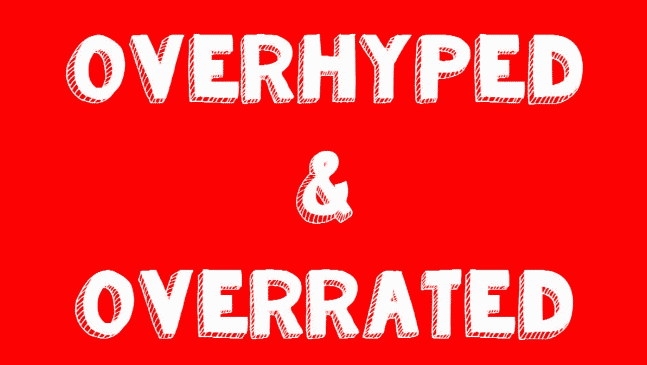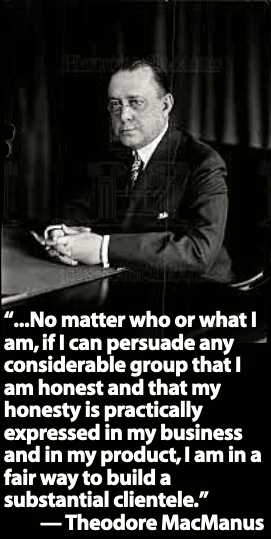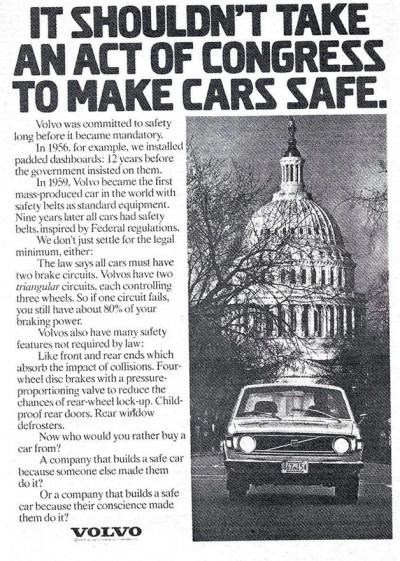
It’s Sunday afternoon and your water heater breaks.
Fortunately, you’re home when it breaks and your water heater is in your (unfinished) garage, so flooding ain’t an issue.
But still, you have no hot water and you need a replacement heater ASAP.
Question:
Do you care whether you get a “unique” plumber to fix this for you?
Or is any competent and available plumber just fine?
If you chose the latter, recognize that neither “available” nor “competent” are unique qualities.
[Note, it’s possible, of course, for weekend availability or same-day water heater replacement to be unique offerings of one plumbing brand in a small market. But they won’t stay unique for long. We’ll cover why in the next section]
“Unique” and Relevant Won’t Last
If your promised benefit is compelling enough to win you the sale, your competitors won’t let it be “unique” to you for long.
When Dodge came out with the modern minivan in 1984, it was utterly unique to the market, offering compelling benefits not available from any other manufacturer.
Compared to station wagons, minivans were new, “cool” (if you can believe it), roomier, etc. And only one brand had them.
It’s why Dodge sold over a quarter of a million Caravans that year.
Guess when the first competitor launched their minivan?
GMC launched the Astro in 1985, and Ford’s Aerostar debuted in ’86.
That’s how fast the market responds to a unique benefit that actually wins sales.
Just like how, at one point, Alaska Airlines was the only airline offering air miles.
If you’re lucky enough to have a unique differentiator to your brand, the best thing you can do is add distinctiveness and bonding to your marketing in order to cement your lead.
Red Bull did this back when they were the only energy drink on the market, which is why they’re still the number one drink in the category.
“Unique” and Irrelevant Isn’t Worth Advertising
If your promised unique benefit ISN’T compelling to the audience, you risk advertising irrelevant bullshit.
Think of Theodore Levitt’s famous aphorism: “people don’t want to buy a quarter-inch drill; they want a quarter-inch hole.”
By implication, the most emotionally compelling benefit of your product or service will never be unique.
All quarter-inch drills make quarter-inch holes!
Recall the previous scenario with your water heater.
The most compelling benefit a plumber can offer you is the ability to swoop in and solve your plumbing emergency.
Rather than being unique, that’s basically the core competency of any decent plumber.
OK. So if “unique” isn’t a great brand attribute, then what is?
Focus on “Honest” over “Unique”
 Ogilvy would call this the “Positively Good” approach to advertising.
Ogilvy would call this the “Positively Good” approach to advertising.
But Ogilvy didn’t invent this, he merely named it. Theodore MacManus was building brands based on this premise long before Ogilvy got into the advertising game.
And I think this quote from McManus perfectly expresses this advertising strategy.
“The real suggestion to convey is that the man manufacturing the product is an honest man, and that the product is an honest product, to be preferred above all others.”
Honest. Not “unique.”
Basically, this is an expression of Simon Sinek’s famous “Start With Why” principle, some 80+ years prior.
Because while an honest man, looking to build an honest product, may take unique pains in its production to ensure quality, and may therefore end up with unique features and benefits, the focus belongs on the honesty.
You start with the WHY — the honesty of the manufacturer — and you offer the HOW and the WHAT as manifestations and proof of the why.
This way, after your customers have bonded with you over the WHY, they’ll stick with you even if the WHAT gets copied by others.
Case in point, Volvo. And specifically this Volvo magazine ad from back in the day:

Volvo had built an enviable reputation for solid engineering and safety over the years.
But they were smart: they didn’t focus on the features alone. They focused on the WHY behind the features — the values that drove the company.
Other cars were flashier or sexier. But Volvo offered honest value and safety for your money.
So even after many of their once-unique safety features ended up being mandated for all cars, people kept buying Volvos.
Just as many customers continued to stick with iPhones long after other smartphones copied its best features.
Back to Our Plumbing Example
So you’re stuck with a broken water heater on a Saturday afternoon.
If a plumbing company had advertised their honest desire to serve customers at their convenience, even on weekends, holidays, and after hours…
And if it was an effective campaign…
Then would you care whether that promised benefit was unique?
Or would you call them first because they were the first company that came to mind that you KNEW would be open?
And if you admired the owner’s dedication to service and craftsmanship, you’d likely call that plumber first even if you were aware of other plumber’s who were open on weekends, etc.
This is how honesty and bonding beats unique.
Interested in a bonding campaign for your company?
Got questions?
- Are You Paying for Too Much for the Wrong Keywords? - July 15, 2024
- Dominate Your Market Like Rolex — 4 Powerful Branding Lessons - July 3, 2024
- Military-Grade Persuasion for Your Branding - June 25, 2024
